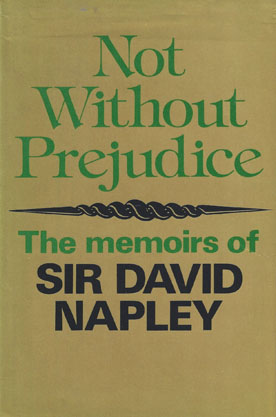We are now closed for the Christmas and New Year period, returning on Monday 5th January 2026. Orders placed during this time will be processed upon our return on 5th January.

Out of Print
In contrast to the steady stream of memoirs from barristers, a book by a solicitor is a comparative rarity, and it is perhaps time for this imbalance to be corrected. It is fitting then that Sir David N apley, one of the most eminent members of his profession, should cast his pen into these scales.'
Indeed, one of his principal declared objectives is to demonstrate by reference to actual cases and events that, contrary to popular misconception, solicitors play at least as important, a role as barristers in the conduct of trials at law.
Sir David has been practising since 1937, and though his many-faceted legal life has had intermissions - notably a period of military service and' excursions into politics - his most vivid experiences, like his lively views, come from his 45 years on the stage of the law.
The author gives a fresh, individualistic portrayal of the famous and the infamous with whom he has been concerned, including an assortment of criminals that takes in a fair quota of murderers. He describes his defence of Ian Ball, who tried to kidnap Princess Anne, his participation in the Lennon/Yoko affair, the Stafford/Luvaglio case which aroused much public concern, the Roberts case in which three police officers died, and many other actions in which he was closely involved, giving for example new insights into the Jeremy Thorpe and Steve Biko causes celebres .
The author is vehement in his condemnation of grave flaws in the law-enforcement system, and he is quick to attack bad law wherever he detects it. His strictures have greater impact in that they come from one who describes himself as 'a Disraelian Conservative' rather than from the more familiar artillery of the Left.
They are, in fact, levelled with admirable impartiality as well as immense vigour, whether his target is the National Council of Civil Liberties, Sir Robert Mark, Auberon Waugh, certain magistrates or what he sees as the over-exclusivity of the barristers.